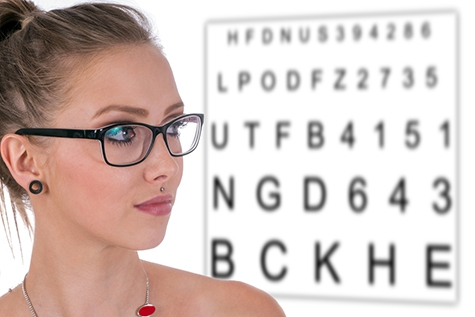Should you experience any of these symptoms it is advised to consult with an ophthalmologist (medical eye specialist), who will provide a prescription for the correct medication. Always be aware that eye infections can easily be transferred from one individual to another, especially within families.
6. Never share medication with a friend or relative, especially prescribed medication. The medication might be suitable for your eyes, but not for that of another person. This is also a common method of transferring infections from one individual to another.
7. It is advised to have your eyes tested at least once every 18 months. Vision often decreases very slowly and it then goes unnoticed. An optometrist will also be able to identify conditions that may necessitate a consultation with a specialist. If, like most individuals, the problem lies in not wanting to wear spectacles, there is a wide range of alternative options that can be considered to suit your personal needs.
8. Employees should always have protective eyewear available in work conditions, areas and activities where they may be exposed to factors which may easily result in an eye injury. Once the appropriate eyewear is provided it should always be worn in order to prevent the eyes from pieces of material going into the eye as well as to protect the eyes during activities like welding.
9. The health of children’s eyes is equally important to that of adults. It is important that a child is examined by an ophthalmologist at a fairly young age to determine whether all the ocular milestones are met. During the school years regular visits to the optometrist is encouraged to ensure that the ocular development takes place normally and to ensure that no spectacles are required at that point. CHILD 2 PIC
10. The most common causes of blindness in South Africa currently are cataracts, glaucoma, age-related macular degeneration (AMD) and diabetic eye disease. Most of these potentially blinding conditions can be treated if detected early through the proper diagnostic tests by an eye specialist. Specific symptoms to look out for include blurry vision, a sudden loss of vision, double vision, flashes and floaters and halos and glare around lights. These symptoms may indicate a very serious problem.
More information
For more information, visit http://www.intercare.co.za/patient-guide



